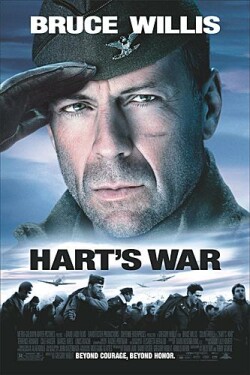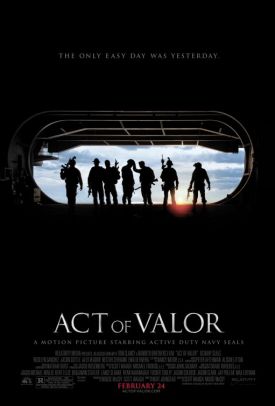Hart’s War
At the very end of the prisoner-of- war epic, Hart’s War, one of
the main characters explains in a voiceover that, after the war, another of the
characters “got the chance to explain the word ‘honor’ to his
son” — because he himself had grown to understand it after the
events described in the movie. I wish he had taken the time to explain it to me
too. Nothing too elaborate: just a few general rules arising out of the specific
situation, which is otherwise far too complicated and improbable to suggest any
more general lesson of its own. You’ll just have to take my word for this,
as to explain its complexities and improbabilities would give away too much of a
plot whose little surprises are just about all it has going for it. Suffice it
to say that the familiar drama of the Second World War here gives way to the now
equally familiar saga of postwar American race relations, before finally turning
back into the first familiar saga with its familiar avatars of good and evil in their olive-drab and grey-black uniforms.
So much familiarity would naturally be a handicap to a director hoping to
interest us in his story, but Gregory Hoblit and his brace of screenwriters
— Billy Ray and Terry George — with four first names between them
further Hoblit themselves by offering us no interesting character either. Bruce
Willis’s taciturn Colonel McNamara (“fourth generation West
Point”), Colin Farrell’s weak but likeable Lt. Tommy Hart, a
senator’s son with a staff job captured by accident in the Battle of the
Bulge, Terrence Howard’s noble Negro, Lt. Lincoln Scott, a Tuskegee
Airman, Cole Hauser’s vicious racist (and traitor) Sgt. Vic
Bedford, Marcel Iures’s world-weary, jazz-loving Nazi, Col. Werner Visser,
the camp commandant — all are types rather than people. We have seen their
likes a hundred times before and we shall see them again every time they are
needed as counters in some such moral drama as this.
And, as if that were not enough (one, two, three strikes you’re
out), the dialogue is at several points decidedly overripe. When the commandant
orders a prisoner who has been found with a makeshift weapon in his bunk to be
shot, Col. McNamara protests: “The Geneva convention specifically forbids
summary execution.”
“Look around you, Colonel,” says Visser with an evil smile. “This is not
Geneva.” Later, when McNamara insists that one of his men accused of
murder be tried by his fellow prisoners, his German counterpart says: “A
court martial! Like in your American movies. That should be fun. All
right.”
I wonder if the writers thought this kind of thing was sardonic Nazi wit or
if they were making a sly post-modern joke about how much of what we are seeing
is “like in your American movies” — rather, that is, than
being like in real life. Most of all like the movies is Lt. Scott’s
peroration from the witness stand about the iniquity (perhaps you’ve heard
about it?) of the treatment of black folks in the South, and even in the army.
It’s not that one is not sympathetic; it’s that one never has the
sense of how the speech belongs here. Always we hear the echo of the pitch
meeting where some genius is saying: “It’s Stalag 17 meets
To Kill a Mockingbird! It can’t miss!”
But it does miss. The movie simply takes for granted the now-fashionable but
quite anachronistic view that the war was fought against racism. It never gives
us any sense of the reality of the conflict, or of the men on either side.
Instead of getting the lesson in honor we have been promised we have got yet
another lecture on racial tolerance, yet another history lesson about how bad
Nazis and Southern racists were. Somebody does do his duty and nobly gives up
his life to save that of a comrade, but it is an isolated act unsupported by
anything we have seen earlier in the movie either in the character of the person
who performs it or in any more general understanding of honorable deeds. Up
until that point honor seems to consist only of being nice to Negroes and not
being nice to Nazis or racists. It’s a worthy precept, of course, but one
that could have been learned, like Lt. Scott’s anti-racism, back in Macon,
Georgia.
Discover more from James Bowman
Subscribe to get the latest posts to your email.








